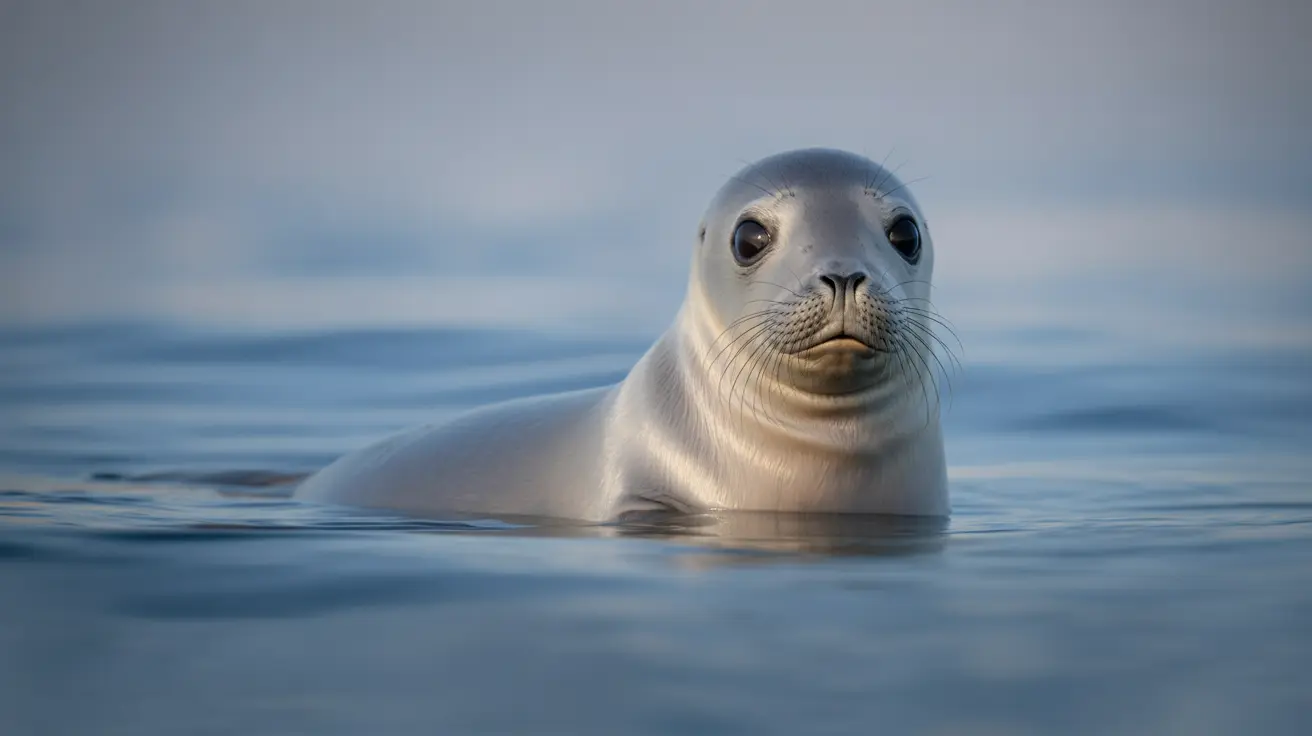The Brunswick-based Marine Mammals of Maine has demonstrated exceptional dedication to marine wildlife conservation, responding to more than 300 animals throughout 2025. As the largest seal rehabilitation facility in the Northeast, this non-profit organization continues to play a crucial role in protecting harbor seals and other marine mammals along Maine's expansive coastline.
For pet owners and animal lovers alike, understanding the vital work of marine mammal rescue organizations helps highlight the broader importance of wildlife conservation and responsible animal care. The significant number of responses in 2025 underscores both the ongoing challenges facing marine wildlife and the critical need for specialized rehabilitation services.
Harbor Seal Pup Care and Rehabilitation Process
Harbor seal pup rehabilitation represents one of the most intensive aspects of Marine Mammals of Maine's work. When orphaned or injured seal pups arrive at the facility, they require a minimum of three months of specialized care before they can return to their ocean home. This extensive rehabilitation process involves medical treatment, nutritional support, and careful monitoring to ensure each pup develops the natural behaviors necessary for survival in the wild.
The rehabilitation process mirrors many aspects of caring for domestic animals, requiring round-the-clock attention, proper nutrition, and medical intervention when needed. However, unlike pets, the goal is always to minimize human contact and preserve the wild instincts these marine mammals need to thrive once released.
Stranded Seal Protection and Public Education
One of the most challenging aspects of marine mammal rescue involves educating the public about proper response to stranded seals. Many well-intentioned beachgoers discover what appears to be an abandoned seal pup and attempt to help, not realizing that mother seals regularly leave their young on shore while they hunt for food.
Human intervention in these natural behaviors can lead to genuine abandonment, stress, or even death for young seals. Marine Mammals of Maine emphasizes that the best help the public can provide is maintaining distance and contacting trained professionals who can properly assess each situation.
Seal Entanglement Rescue and Marine Debris Challenges
Entanglement in fishing gear and marine debris poses a significant threat to seals along the Maine coast. These situations require specialized rescue techniques and equipment to safely free trapped animals without causing additional injury. The experienced team at Marine Mammals of Maine has developed protocols for addressing these complex rescue scenarios.
The growing problem of marine debris, including discarded fishing nets, plastic waste, and other human-generated materials, continues to impact marine wildlife populations. Each entanglement rescue serves as a reminder of the connection between human activities and wildlife welfare.
Maine Marine Wildlife Conservation Impact
The work of Marine Mammals of Maine extends beyond individual animal rescue to broader conservation efforts that benefit entire marine ecosystems. By rehabilitating and releasing healthy animals, the organization contributes to maintaining stable harbor seal populations along the Maine coast.
Their educational outreach programs help coastal communities understand their role in marine mammal protection, creating a network of informed citizens who can respond appropriately to wildlife encounters. This community-based approach multiplies the impact of their direct rescue and rehabilitation work.
How to Report Stranded Seals
When encountering a potentially stranded seal, the most important action is to contact the Maine Marine Animal Reporting Hotline immediately. Trained responders can determine whether intervention is necessary and coordinate appropriate rescue efforts when needed.
The public plays a crucial role in marine mammal conservation by serving as the eyes and ears along Maine's extensive coastline, reporting animals in distress while avoiding direct intervention that could worsen the situation.
Frequently Asked Questions
What should I do if I find a stranded or injured seal on a Maine beach?
If you find a stranded or injured seal, stay at least 150 feet away, do not touch or feed the animal, and immediately call the Maine Marine Animal Reporting Hotline at 1-800-532-9551 to report it so trained responders can assist.
Why is it harmful to try to rescue or feed seal pups found on the shore?
Many seal pups that appear abandoned are actually left temporarily by their mothers to feed; intervening can cause stress, abandonment, or even death. Feeding or handling them improperly can also harm their health and is illegal under the Marine Mammal Protection Act.
How long does rehabilitation take for orphaned or injured harbor seal pups?
Harbor seal pups typically require a minimum of three months of intensive rehabilitative care, sometimes longer depending on their health and development before they can be released back into the wild.
What are the main threats to seals along the Maine coast that Marine Mammals of Maine addresses?
The main threats include human interactions like harassment, entanglement in fishing gear and marine debris, injuries, and abandonment. Marine Mammals of Maine works on rescue, rehabilitation, disentanglement, and public education to mitigate these impacts.
How can the public help support seal rehabilitation and marine mammal conservation in Maine?
People can help by responsibly disposing of trash to reduce marine debris, reporting stranded animals via hotlines rather than intervening themselves, donating or volunteering with Marine Mammals of Maine, and spreading awareness about proper seal and marine mammal response.
The remarkable work of Marine Mammals of Maine demonstrates the positive impact that dedicated conservation efforts can have on wildlife populations. As pet owners who understand the importance of proper animal care, we can appreciate the specialized expertise required to rehabilitate wild marine mammals and support these efforts through responsible behavior and community awareness.






